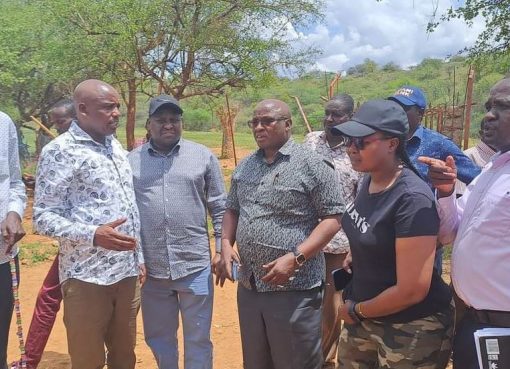The Government has released funds to help redefine the climate change phenomenon through the Financing Locally-Led Climate Action Programme (FLLOCA) in order to strengthen local resilience and achieve significant and sustainable progress in the war against climate change.
Kenya is the first African country to enact a Climate Change Act back in 2006 and one of the first to enact laws at the sub-national level (County Governments) that will make significant strides in the effort to combat climate change
Prime Cabinet Secretary Musalia Mudavadi said the government has taken the whole of its approach in the spirit of leaving no one behind and building synergies to address climate change on a scale, including mainstreaming climate change in government programs and projects.
“To respond adequately to climate-related risks to peace and security, Kenya has already taken steps to strengthen coordination across different sectors, and the institutional infrastructure to better understand and channel climate finance to build resilience for peace,” Mudavadi remarked.
He also added that in the Horn of Africa, climate change risks have adversely affected the pastoralist communities who compete over declining natural resources that often result in intercommunal conflicts, forced migration, displacements, and deaths.
“Here in Africa, climate change is a threat multiplier that has become a major deterrent of peaceful co-existence among communities within and across borders,” he observed, adding that the National Drought Management Authority gives early warning systems, and response to climate-related disasters and risks in the Arid and Semi-Arid Lands (ASALs).
Further, Mudavadi pointed out that low-emission continents with massive untapped natural resources including renewable energy potential, and the world’s youngest and fastest growing workforce, makes Africa a very cost-competitive location for deploying green manufacturing and industrial capacity and removing carbon at scale.
The Prime CS made these remarks during the opening of the Berlin Climate and Security Conference (BCSC) on climate change summit in Nairobi where he stated that the African Union (AU) Peace and Security Council has underlined the importance of adopting a climate-sensitive planning dimension to peacekeeping and post-conflict reconstruction missions, and in development efforts to prevent any relapse to armed conflicts in fragile communities.
Also speaking at the event, the Special Representative for International Climate Policy of the Federal Republic of Germany, State Secretary Ms Jennifer Morgan, said that the climate crisis remains the biggest challenge of security threats since it affects humanity and biodiversity.
She added that in the year 2019, Kenya started the Berlin Forum on climate, and last year, Kenya launched a climate action plan which aimed to strengthen the country’s path towards sustainable, climate-resilient development while achieving low carbon climate resilient development.
“Climate is one of the biggest threats in the country since it affects food production, resources, and immigration of people from different countries, therefore, the government has decided to make climate a natural pillar,” stressed Morgan.
She at the same time said the developed countries are shifting investment to climate change mitigation.
Further, Morgan disclosed her country is working with other countries to establish global renewable energy so as to realize the benefits and impact it has on African countries.
“Kenya has a more interpreted concept of security to address the refugees that are extremely affected by conflicts that climate change issues have perilously contributed to,” she lauded.
The Summit aims to break new ground by redefining the narrative on climate change and innovative ways of mobilizing climate financing with scale and urgency to achieve significant and sustainable progress in the war against climate change.
By Peace Muthoka and Ali Sheikh Mohammed





